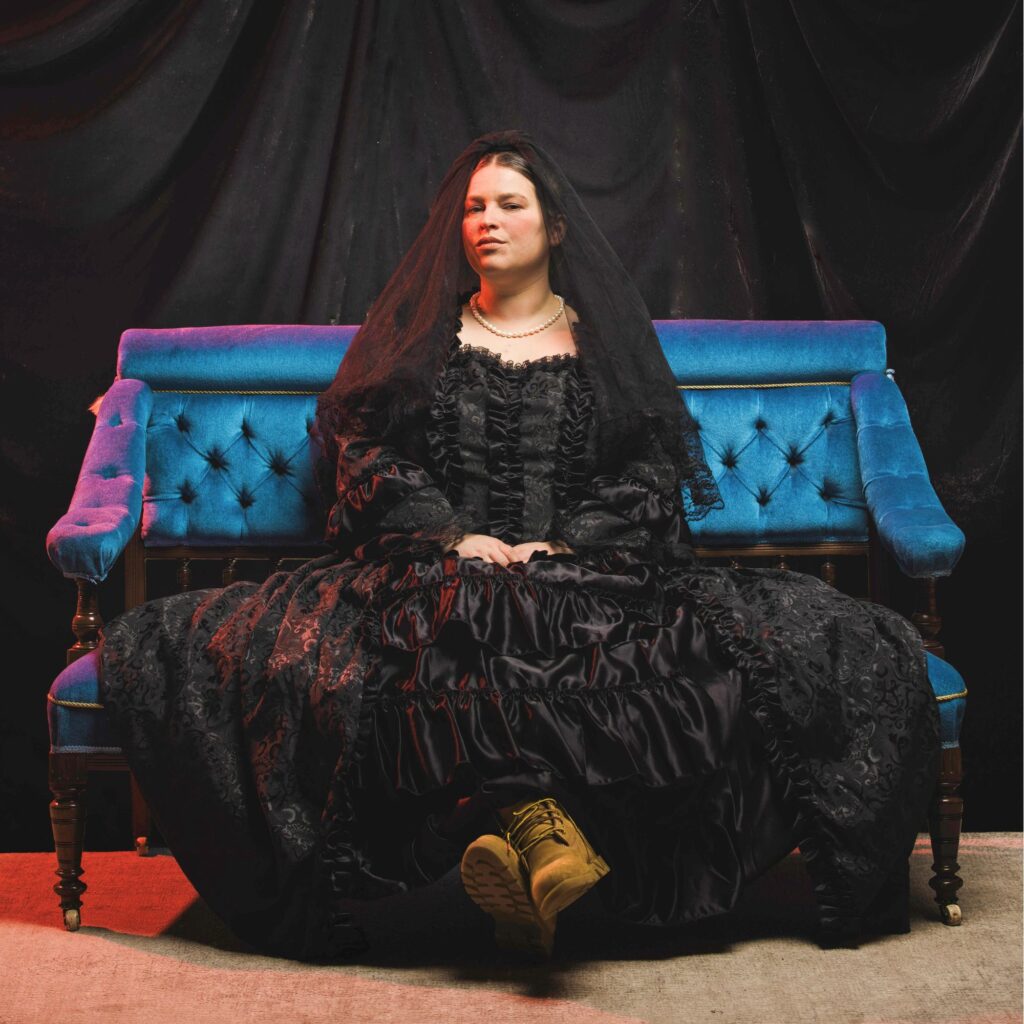Baroness
Te Whare o Rukutia, 20 Princes St, Dunedin
20/03/2024 - 23/03/2024
Good Times Comedy Club, 224 St Asaph St, Christchurch
23/11/2024 - 23/11/2024
Production Details
Writers: Marea Colombo and Bronwyn Wallace
Director: Bronwyn Wallace
Late Bloomers
What would you do if you became the richest woman in the world overnight? Multi-award-winning comedian Marea Colombo tells the tale of Angela Burdett-Coutts, the greatest Baroness you’ve never heard of. In a unique take on stand-up comedy, Baroness will be a chaotic and critical analysis of the state of the world. Because you know what they say – mo’ money, mo’ problems.
Produced by Late Bloomers – an Ōtepoi-based theatre company founded by local creatives Marea Colombo and Bronwyn Wallace.
Link to book: https://www.dunedinfringe.nz/events/baroness
20 – 23 March 6pm at Te Whare o Rukutia
Touch Tour provided Saturday 23 March
Tickets $25/$22
Good Times – Comedy Club, 224 Saint Asaph Street, Christchurch Central City
23 Nov 2024, 6 pm
$25
BOOK
Performed by Marea Colombo
Comedy , Theatre , Solo ,
1 hour
Hilarious Journey from the 1800s to Today
Review by Ash Dawes 21st Mar 2024
Within a day of returning from Adelaide, where they performed Gaslight Me!, Late Bloomers are back in Ōtepoti performing their new show Baroness at the Dunedin Fringe Festival. Baroness premiered in Te Whare o Rukutia, to a respectably-sized audience (especially for 6pm on a Wednesday).
Baroness walks the line between theatre and comedy in a way that feels like the natural evolution of Late Bloomers’ work. Their first show, Gaslight Me!, is a fairly straightforward stand-up show; Flow, their second work, is far more theatrical. With Baroness, creatives Marea Colombo and Bronwyn Wallace have struck a remarkably effective balance between both genres. The audience is on board from the moment Colombo (the sole performer) walks up to the stage through the audience, right up until the final TikTok dance of the show.
Baroness tells the story of Angela Burdett-Coutts, a woman from the 1800s who inherited the equivalent of 192 million dollars—becoming the richest woman in England overnight, and the only woman to be made a baroness in her own right. The premise of the show, then, is a question: “what would you do if you won the lotto?” For Angela, the answer to that question was to found charitable organisations (RSPCC, SPCA), build housing for sex workers, and install drinking fountains for dogs around the city.
The show focuses less on Angela’s story than I expected it would, and it takes a while for her name to be mentioned on stage. But the parallels drawn between the modern day and the 1800s effectively set up the political commentary that runs underneath the show’s comedy—that money, far from solving all one’s problems, often creates them, and that we live in a society that values profit over people. And after all, if you won lotto, what would you do with the money?
Wallace and Colombo are, as always, extremely competent writers, and should be proud of what they’ve achieved with Baroness. It is a brand-new show that has never been performed before, but for the most part we don’t notice this fact, and that is impressive in itself. As with any show that covers so much material in an hour, at times I wonder how we got from point A to point B—but it’s an enjoyable ride nonetheless. From sex education, to NZ politics, to the totally platonic relationship between Angela and her “best friend” Hannah (just gals being pals), this show takes us on a wild journey between past and present—and in doing so, illustrates that although our lives look very different these days, a couple of centuries have not fundamentally changed human nature.
Also, BMI is bullsh*t, banks have younger sibling energy, and it’s impossible to correctly insert a USB stick on the first attempt.
In true stand-up fashion, Baroness has a very simple production design. The stage is empty except for a single armchair, and the lighting changes only occasionally (although to great effect). The simple setting and technical design allows Colombo’s costume to stand out—she wears a lavish black dress with a hoop skirt under layers of fabric. As Colombo herself points out early in the piece, it’s boring when comedians just wear jeans and a t-shirt to perform, and the dress not only emphasises the time period in which the titular baroness lived, it also allows for an excellent moment early in the show (which I will not spoil here).
Baroness, true to form, is incredibly funny, and the piece seems to land with most of the audience (although I note the older couple in the back row who seem unimpressed, especially at the jokes about clitorises). Colombo takes her bows to cheers and a standing ovation, which is richly deserved. But for all its humour, what stays with me from Baroness is that Angela Burdett-Coutts asked that after her death, her husband collate all her letters and writing into a biography, and he didn’t do it. In fact, the first biography of this important historical figure was not published until the 1970s. In creating this play, Wallace and Colombo are telling Burdett-Coutts’ story, and finally bringing some recognition to this woman who deserved to be treated with more respect than she was.
Copyright © in the review belongs to the reviewer





Comments